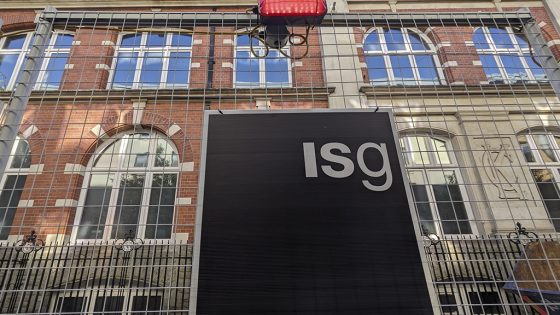Leading industry figures have renewed calls for industry reform after the “body blow” of ISG’s collapse.
The £2.2bn-turnover firm – ranked 6th in the latest CN100 rankings – called in administrators from Ernst & Young on 19 September.
Its UK operations ceased trading with “immediate effect” with the loss of 2,200 jobs, the administrators said.
Iain McIlwee, chief executive of fit-out sector trade body the Finishes and Interiors Sector, told Construction News that ISG’s administration was a “body blow” to the supply chain, with many exposed to significant debt and uncertainty on programme. He urged clients and contractors taking on ISG jobs to work with the existing suppliers and release payments and retentions as soon as possible to provide subcontractors with much-needed liquidity.
He added: “ISG has been a major player in the fit-out world and this is a sad day for our industry.
“A corporate failure of this scale sends out a stark warning, lessons must be learned.
“We have talked about the need to reform construction, to look at the way we procure and allocate risk – how many wake-up calls do we need?”
‘Dysfunctional’ contracts
David Frise, chief executive of trade body the Building Engineering Services Association, criticised a “broken contractual process”. As a result, he said, even well-run firms are left “scrambling around for money just to keep projects and their companies alive”.
He added: “The collapse of ISG came just two weeks after the publication of the Grenfell Tower public inquiry report, which highlighted the dysfunctional nature of many construction contracts.
“ISG needs to be construction’s last major financial collapse that threatens entire supply chains, and the government must help us put a more robust and fit-for-purpose industry in place.”
Low margins
David Crosthwaite, chief economist at the Building Cost Information Service, told CN: “There’s no other sector in this country or anywhere in the world, frankly, that would work for those returns. They are unbelievably poor.”
He said low margins pushed the pain down the supply chain, as tier one contractors that bid low in order to win a contract will try to maximise their return by squeezing suppliers.
He added: “Clients need to take some responsibility for this. Not only clients, but the client advisors, because the cost consultants themselves that are advising the clients need to be pushing to not go for the lowest bid.”
Welsh subcontractor Sam Drylining, which counted ISG among its clients, wrote on LinkedIn that it was “disappointed and frustrated” at the news of the administration.
“This industry needs to change as [it’s] the supply chain and hard working employees that always feel the brunt of the failure of others, with potentially life-changing consequences.
“No other industry in the UK works [like] this. It is left unpoliced with work priced to such small margins with inevitable outcomes.”
The firm assured its clients, employees and supply chain it had a strong balance sheet and healthy order book, adding it would “move forward without ISG”, although it would feel the effects in the short term.
Build UK chief executive Suzannah Nichol told the BBC’s Today programme on Monday (23 September) that while the industry had changed since Carillion’s collapse, “there clearly has not been enough change”.
She said: “We know construction runs on very thin margins. You only need one project to go wrong and get delayed and you start to have cashflow issues.
“ISG had two major contracts which it started, mobilised and then were stopped by the client, and that happens time and time again in construction.”
Sign of the times
They join a chorus of restructuring experts who see the collapse of an industry titan as reflective of the wider state of the industry.
Peter Vinden, director at restructuring company Leonard Curtis, said that given the recent rise in construction businesses entering administration, it “should not be too much of a surprise that one of the industry giants has failed”.
He added: “Contractors that entered into long-term fixed-price contracts have been caught between the ‘rock’ of those contracts and the ‘hard place’ of supply price inflation. Covid is one key cause of this, and the other is Putin’s energy war in Europe.”
Nick Holloway, managing partner at insolvency firm Interpath, said financiers would look at ISG’s collapse as a benchmark for the inherent risk in an industry with fine margins.
“I think there will be a period of self-reflection back to the previous large failure of Carillion a few years ago, and whether lessons have been learnt and whether the industry has changed over that period of time,” he added.

